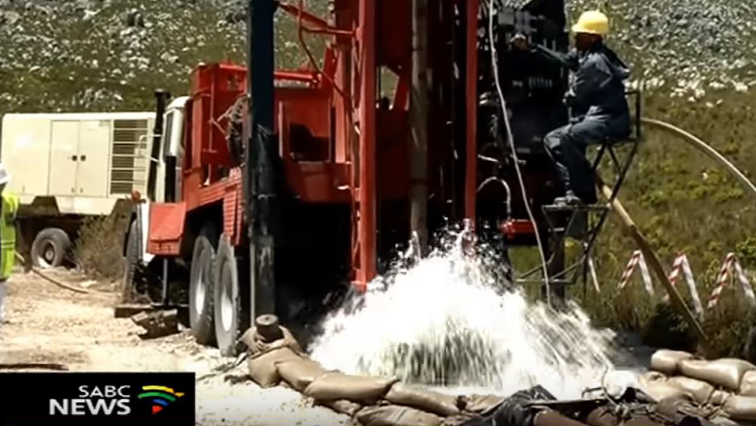Scientists from the South African Environmental Observation Network have warned that little is known about the long term impact of rock aquifer drilling on the underground water table in Cape Town.
They say an increased dependence on ground water systems could cause greater vulnerability to drought in future.
Drilling for ground water is underway in Cape Town following the worst drought in living memory in the Western Cape.
Drilling into aquifers, or underground water, started in earnest last year.
The Table Mountain Group Aquifer is scattered over a wide area and was formed millions of years ago.
It’s a unique but very complex natural system and is thought to be a reliable source of water.
But experts warn that very little is known about the long term effects of extraction.
Dr. Jasper Slingsby of the South African Environmental Observation Network says: “These fractured rock aquifers draw down in funny ways because the water moves preferentially along fault lines and those link to systems that could be kilometres away from the well field and so we could be losing important biodiversity there. But we’re also losing recharge and base flow to our rivers and wetlands that feed our dams. So it could have significant impacts on biodiversity but also on societal needs in terms of water delivery.”
Slingsby says drilling into sand aquifers, like on the Cape Flats, have been studied and could actually be beneficial to the environment.
But he says too little is known about the impact on rock aquifers as a research programme started a decade ago never went into the exploratory phase.
“I think they should definitely slow down. I think they probably put out enough boreholes now for us to really start studying the system and what the impacts might be and so if they just consolidate and leave it there for now before drilling holes everywhere,” says Slingsby.
The city of Cape Town says its groundwater programme is based on years of research.
It says its geophysical surveys are updated and the impact of the drilling on the ground water table is closely monitored.
Slingsby urges that greater efforts should be put into removing alien invasive species, like pine trees from catchment systems, resulting in a loss of 10% water annually.
WATCH BELOW:






